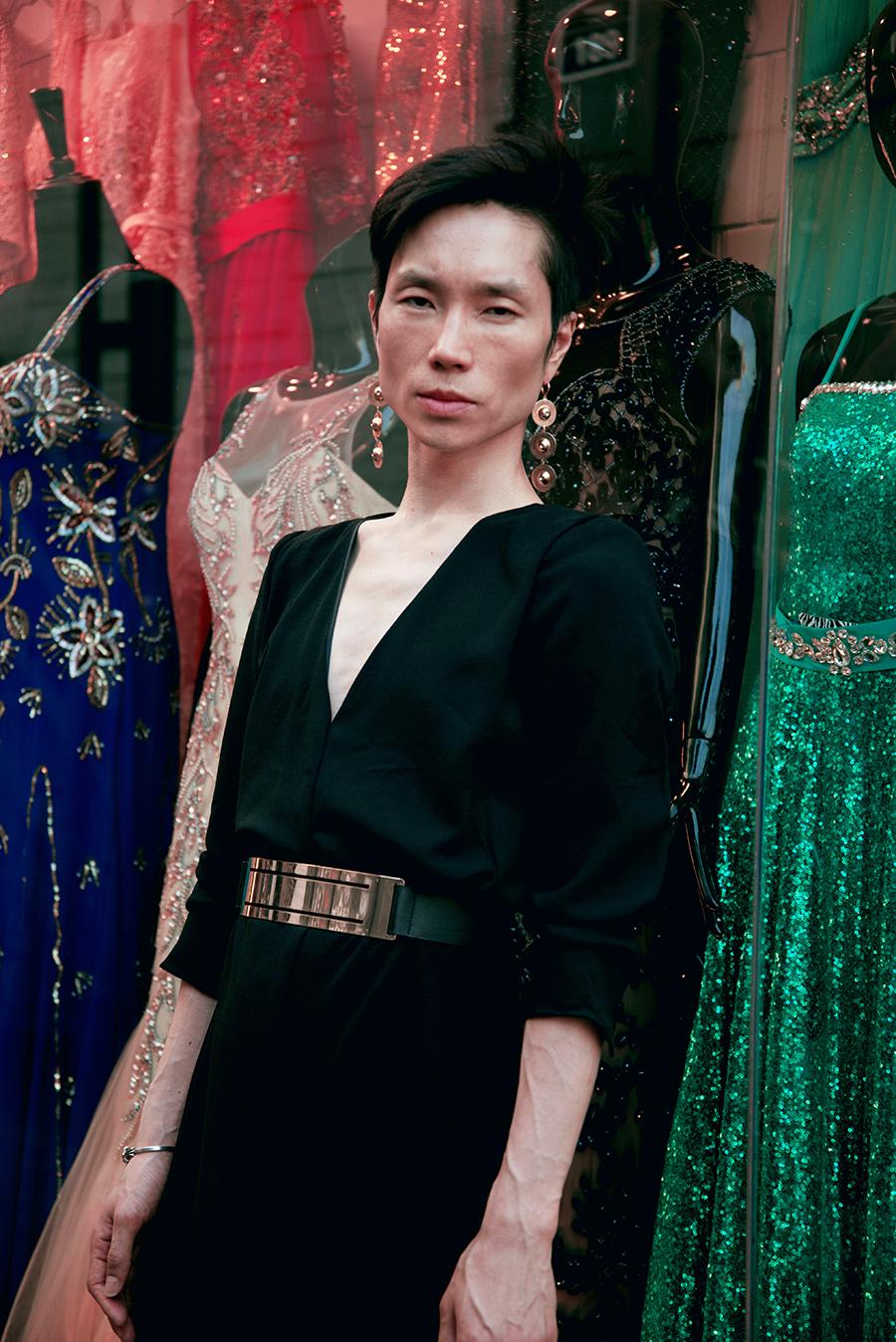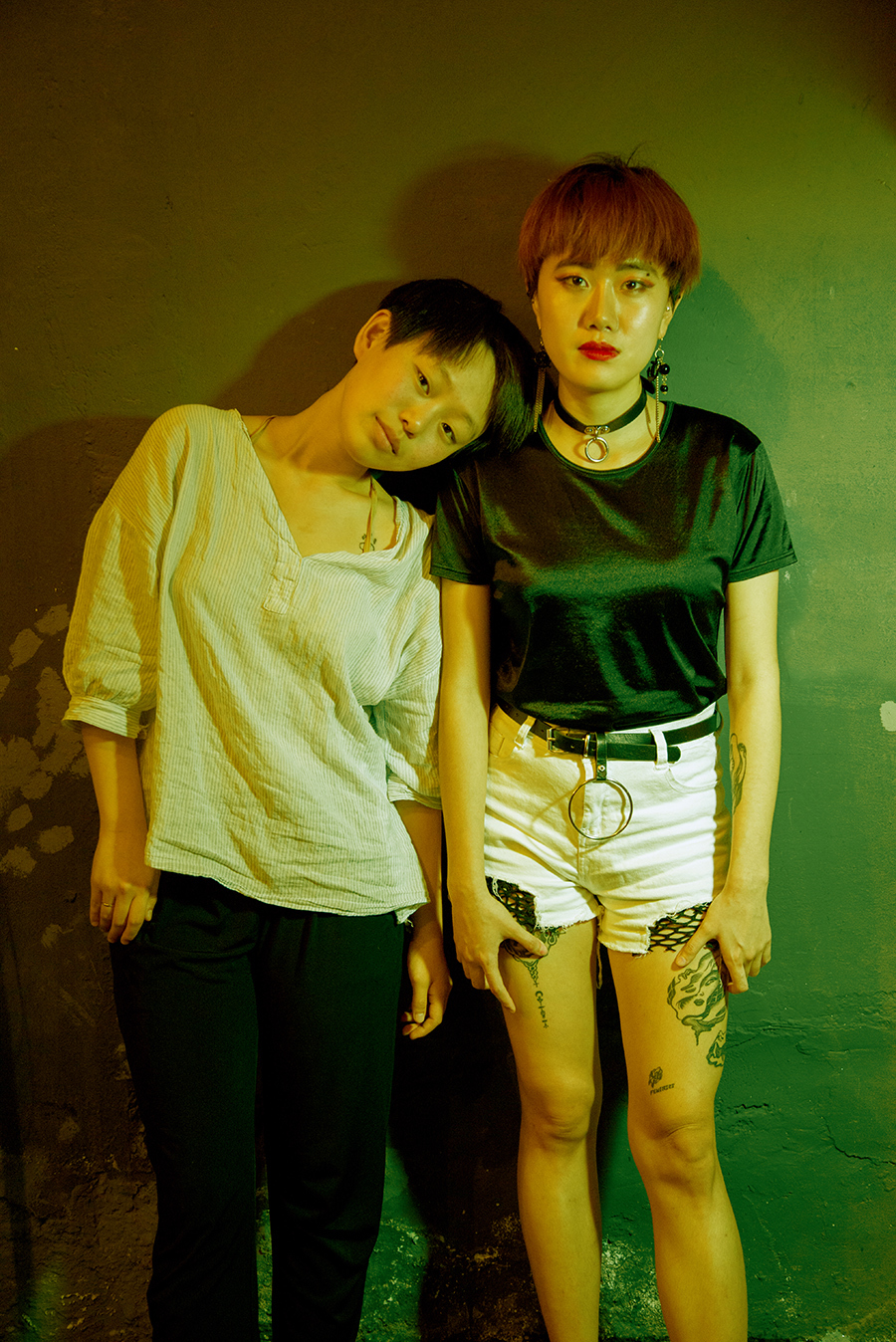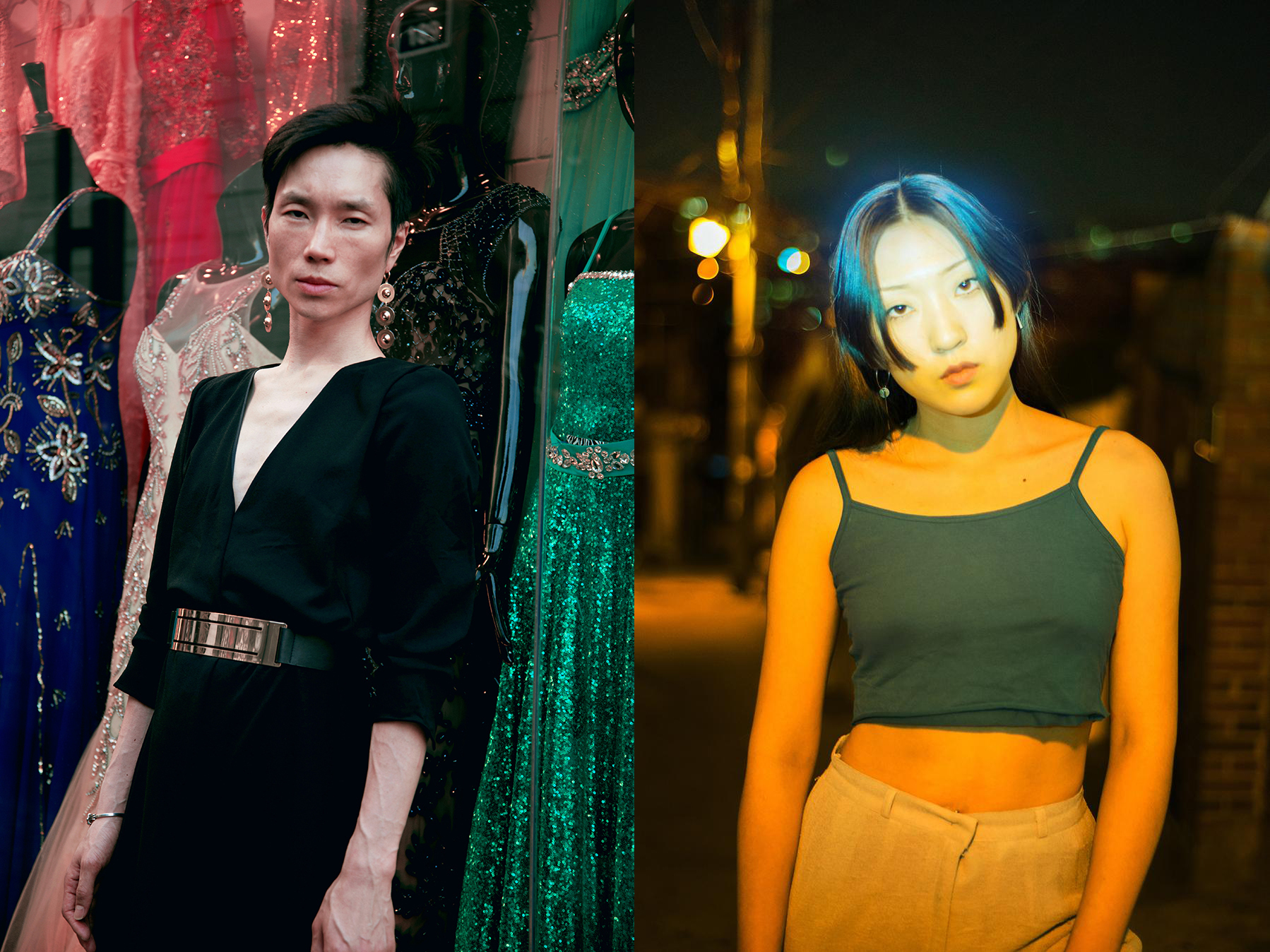A version of this article was originally published by i-D Mexico.
More
What do you do?
I’m a drag queen.
Do you think the LGBT scene in Seoul is becoming more active?
Definitely. The queer festival that takes place every summer in Seoul [Korea Queer Cultural Festival] improves every year; The queer parade [Daegu Queer Festival] in Daegu is also quite large. There are drag queens from abroad such as Kim Chi who come to perform.
What is the most difficult thing about being LGBTQ in South Korea?
That people don’t understand what drag is about, so drag queens are just considered to be ‘men dressed as women’.
What can others do to support the LGBT community in your city?
People can participate by going to events related to the LGBTQ community like the drag queen shows and Pride marches.
Finish this sentence: The best thing about living in Seoul is… The kimchi. Kimchi is the very essence of Koreans. Kimchi is so special to us that when international dancer Pina Bausch made a dance piece, called Rough Cut, she used kimchi as a theme for her work. It’s that important.
Punta, 21 and Ryoo, 21
What do you do?
Punta: I draw. I do a lot of things, design, illustration drawings, but my main work is tattooing. I established the feminist/queer tattooist group named Felis Ink.
Ryoo: I draw and I’m also learning how to tattoo.
Is the LGBTQ scene in Seoul is more active these days?
Punta: Definitely more than the past. It’s more out there in the open than before. We have a long road ahead of us for better LGBTQIA rights — considering the way the media treats queer people.
Ryoo: Absolutely, but only in limited areas. In Seoul I feel that the LGBTQ culture is blooming. In the areas of Itaewon and Hongdae it’s easy to see queer people on the streets. I feel as if I blend in with them.
What is the most difficult part of being LQBTQ in South Korea?
Punta: There are a lot of people who hate the queer community. There are a lot of people with prejudices. There was a queer hate rally in the middle of Seoul this year.
Ryoo: I have a lot of conservative Christian friends. I find it impossible to come out to them. There’s a lot of false information out there about the LGBTQIA community, and not a lot of representative media to show who we really are. It’s just a really bad cycle of not being able to educate them with the right information, and them thinking that I’m some kind of sex addict.
What actions can everyone do to make things better for LGBTQ people in your city?
Punta: A recent survey showed that most Koreans don’t know any LGBTQIA people — which means that Korea is an extremely hard society to come out of the closet. However, we should keep on making our voices heard. The process will be painful and it won’t be easy — but we will survive and fight through this.
Ryoo: Accepting people for who they are and acknowledging the fact that it’s a matter of survival for us in this city.
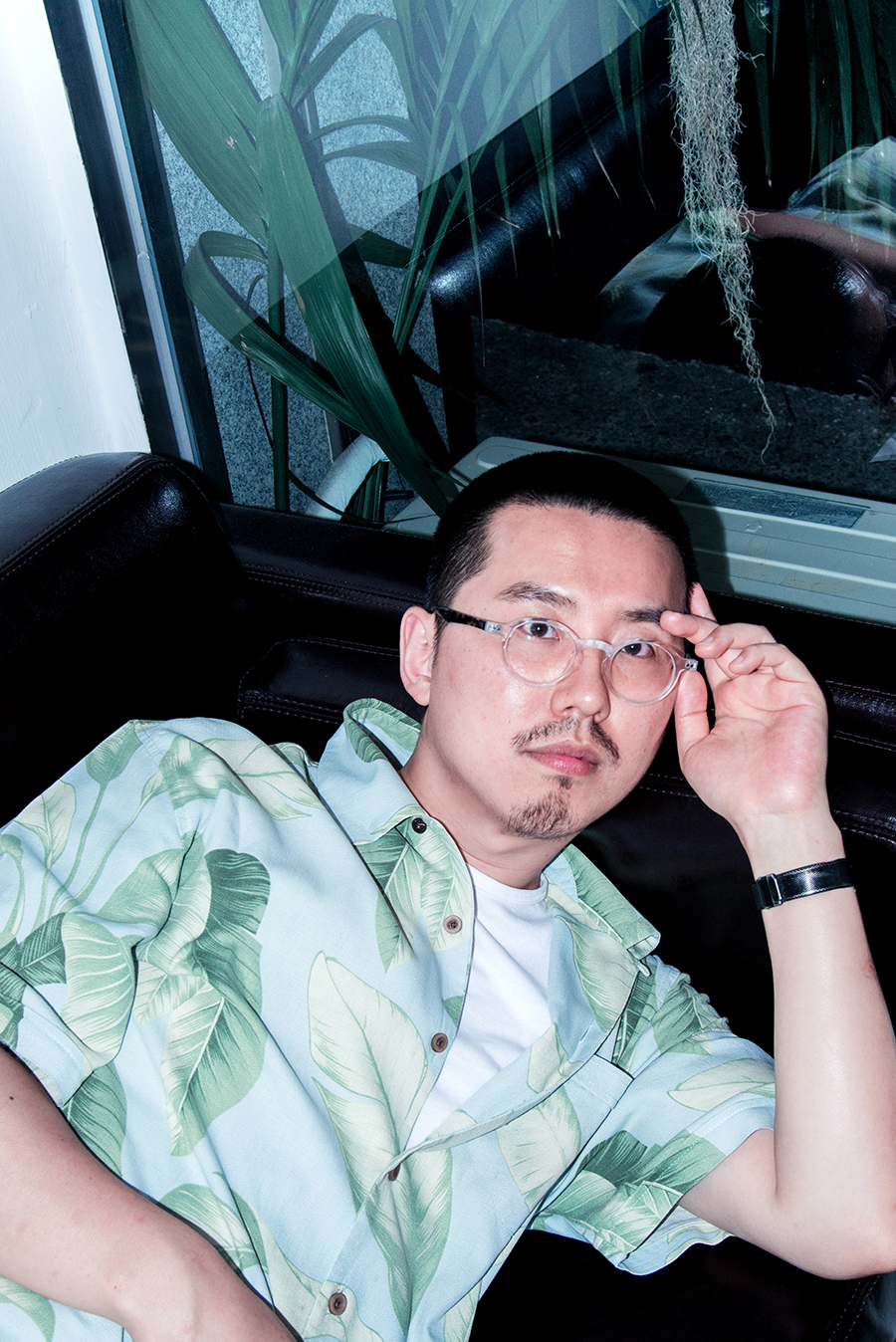
Dozin Lee, 30
What do you do?
I’m a graphic designer. I’m also publisher of the gay magazine DUIRO and I run an LGBT community space called Freckles.
Do you think the LGBT scene in Seoul is more active these days?
We are not seeing any visible change at this point, but our generation expects more. The younger generation are using social media as their channel. Skilful LGBTQIA Youtubers and podcasters are approaching people’s lives in a more casual way. These kinds of things are changing negative images of LGBTQIA. People were just scared of the queer community because they were scared of the unknown.
What is the most difficult thing about being LGBTQ in South Korea?
Relationships with parents. In east Asian countries it’s hard to exist outside of a group, as an individual. Coming out of the closet can break the peace of families. Because of the economic situation in Korea, it’s harder for people to be independent in their twenties and even thirties. This makes it harder for people to come out because they’re still under the influence of their parents. Their sexual identity can be a burden on their close relationships.
How does your work help the LGBTQ community of Seoul?
One of reasons I do the magazine is to let people know that there are LGBT creators out there. Good content has the ability to change people. The community space, Freckles, is used for open lectures, exhibitions and get-togethers.
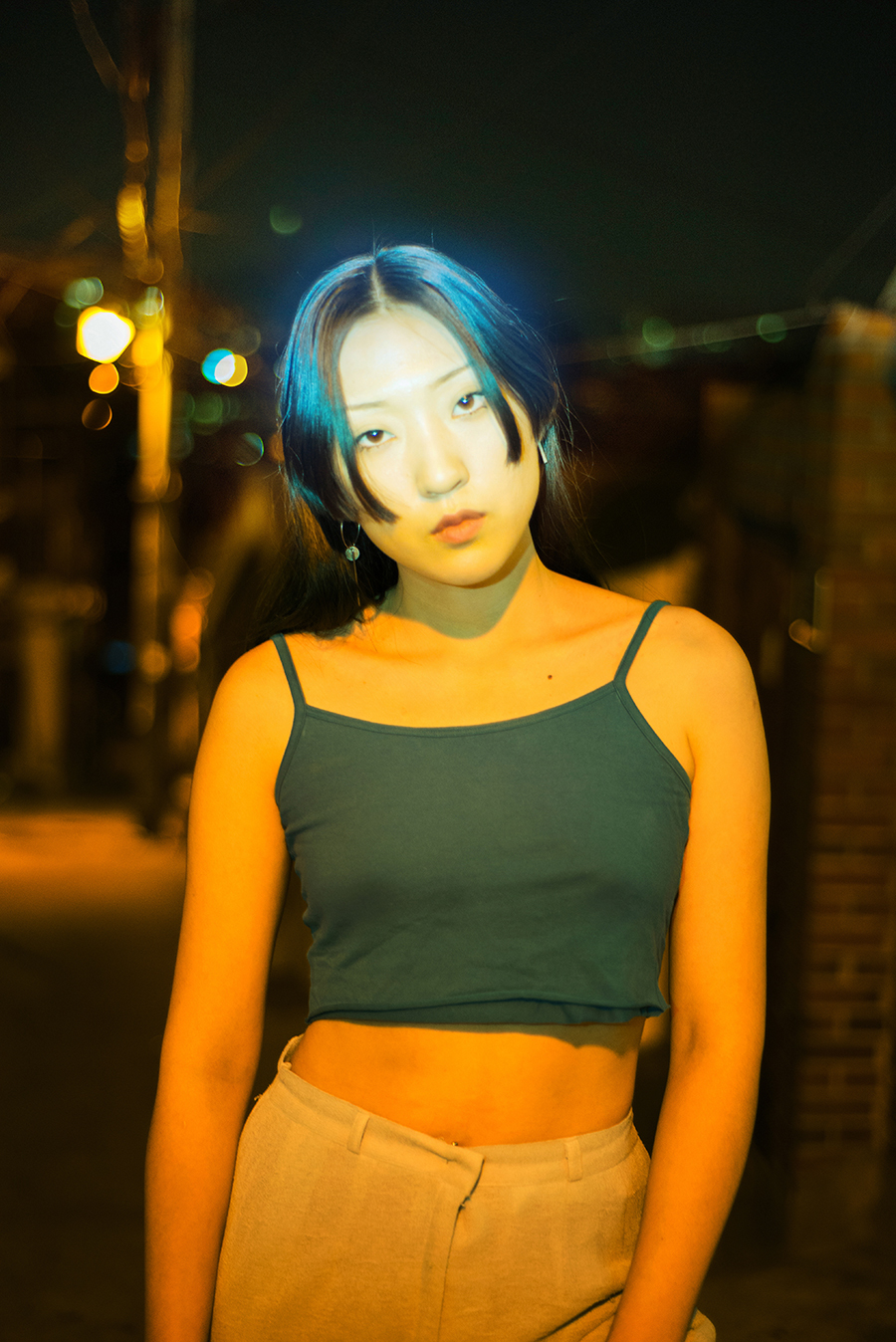
Seesea, 30
What do you do?
Dj and carpenter.
Do you think the LGBT scene in Seoul is more active these days?
Yes, I think people are more aware of LGBTQ people, and I even think they lead culture now in Seoul.
What is the most difficult thing about being LGBTQ in South Korea?
The Catholic church in Korea create difficulties.
What actions can everyone do to make things better for LGBTQ people in your city?
Korean’s don’t get diversity, they need to understand diversity. I think they should learn about that in elementary school.
Finish this sentence: The best part of living in Seoul is… the food is so tasty.
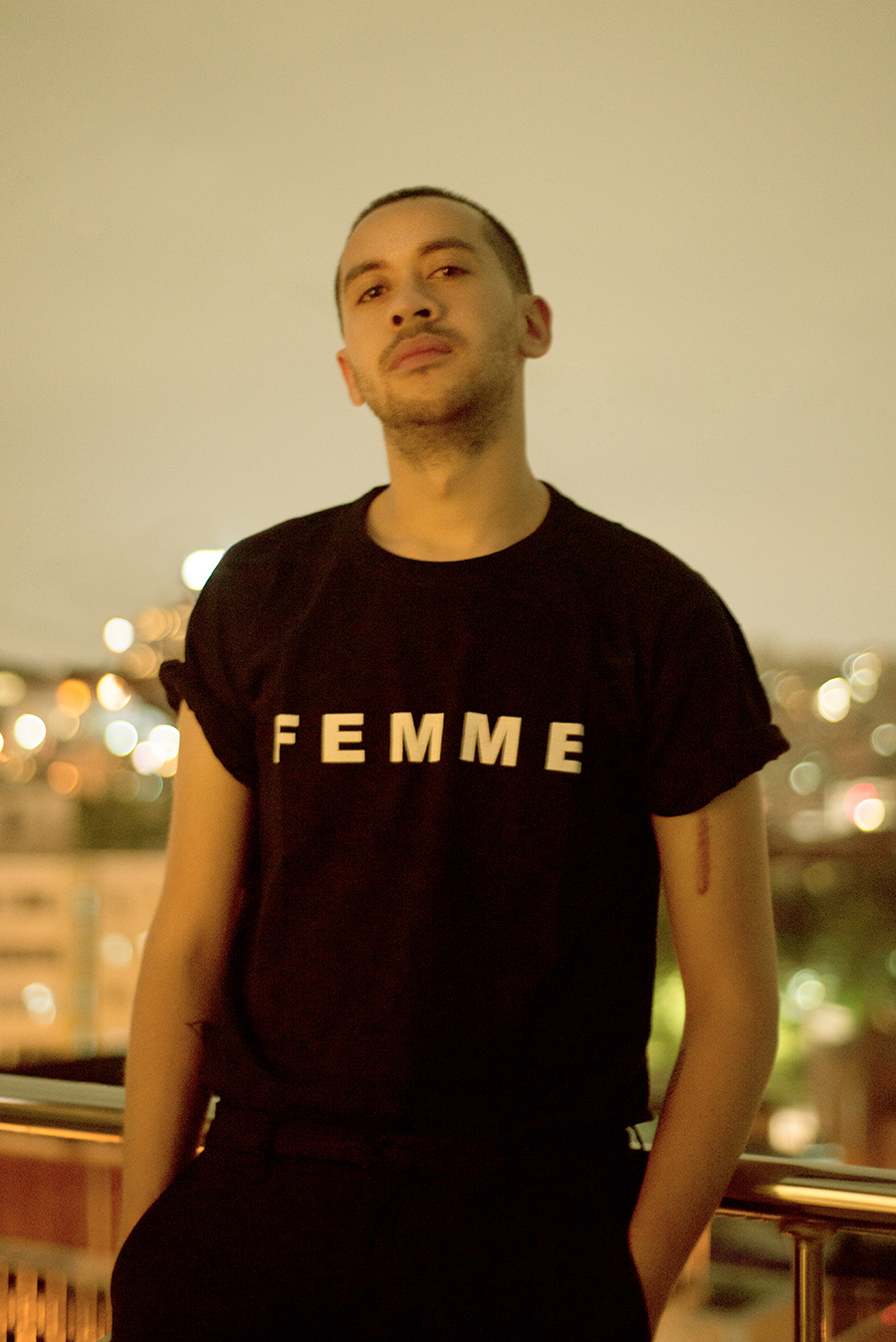
Lindsay Gary Ryklief, 28
What do you do?
Dj, promoter and photographer.
Do you think the LGBT scene in Seoul is more active these days?
Yes. I’ve been in Korea for 5 years and every year you see change, however small. Every year the pride parade increases in size with more people showing support, more LGBTQ parties and clubs have sprung up with a strong drag queen culture. The younger generation seems to be more open to LGBTQ communities and are socially more aware.
What is the most difficult thing about being LGBTQ in South Korea?
Korea is still a very conservative society, with the older generation not accepting the LGBTQIA community and public displays of affection are rarely seen, unless you are in a gay area. Also, same-sex marriage is not legal. Many Koreans are not able to disclose their sexuality to their families for fear of being disowned.
How does your work involve the LGBTQ community in Seoul?
As promoter I try to create safe spaces for the community to express themselves without any judgement or shaming. The parties we organise are changing the culture, creating an alternative narrative within the underground music scene. I also try to integrate the LGBTQIA community with the heterosexual community in a space where we can all be together, sharing our love for music.
What actions can everyone do to make things better for LGBTQ people in your city?
Be respectful, stop placing stereotypes on the community. Support the community. Stand up for people from the LQBTQ community.
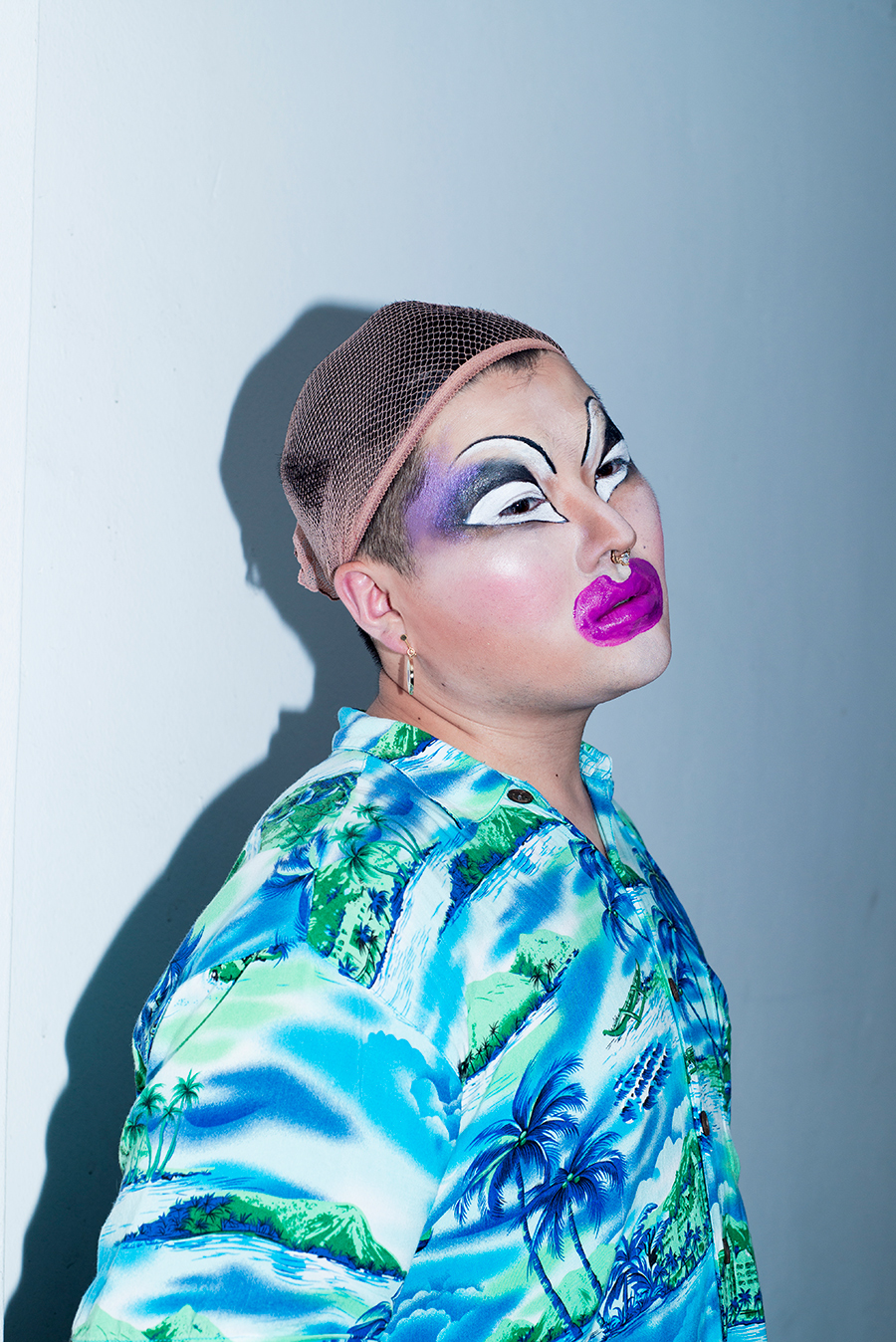
Chulhee Park, 29
What do you do?
Graphic designer, LGBTQ bookstore owner.
Do you think the LGBT scene in Seoul is more active these days?
Yes. When I first opened the bookshop I was able to keep up with the LGBT books being published, and it wasn’t so hard to collect them all. I would just leisurely stock up. These days I can’t seem to keep up with the speed of LGBT books being published. Well, there’s also the fact that I am lazier than before.
What is the most difficult thing about being LGBTQ in South Korea?:
Korea traditionally has a very conservative view on gender. That view seems to passed on like DNA, so it’s hard for people who are trying to live in the present. It will be a gruelling job to change people’s perspectives. It will change, but I believe I’ll be dead when the point comes that I can live a comfortable life.
What led you to opening your bookstore?
One of the reasons I opened Sunny Bookshop is because most LGBTQ–related stores open at night. I thought it would be great if there was a place for people to share LGBT culture during the daytime. That’s why I named the place Sunny Bookshop. For some people, the simple act of buying an LGBTQ-related book and putting it on their shelf takes great courage. We also host open workshops, events with famous cartoonists and penis drawing contests, as well as other events.
Finish this sentence: The best part of living in Seoul is… seeing change.
Credits
Photography Kanghyuk Lee
